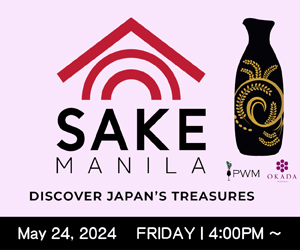Senate Blue Ribbon Committee to investigate reported waste of vaccines vs COVID-19
The Senate Blue Ribbon Committee will conduct a probe on the reported wastage of 44 million vaccines against COVID-19.
In an interview with dzBB Sunday, Senator Francis Tolentino said: “We have a plan (to conduct a probe), but the Christmas break is approaching.''
“But this issue about vaccines is very important because this is not an ordinary procurement. The health of the public depends on this and a huge amount of money was spent. It would be good if we could see where this money went,'' said Tolentino, chairman of the Blue Ribbon Committee.
''The wastage of 44 million vaccines that the DOH reported includes vaccines bought by the private sector and LGUs (local government units). Even then, we would be able to see how the DOH (Department of Health) implemented it,” he added.
Tolentino said the panel will look into the possible overpricing of vaccine companies, vaccine brands included in the wastage, and the price per dose of wasted vaccines, among others.
Tolentino said he supports the Commission on Audit’s (COA) call to audit the government’s procurement of COVID-19 vaccines.
“We are interested in this (auditing the procured COVID-19 vaccines) because this is a public interest issue and the money of the public is involved,” Tolentino said.
“The funds for this were first released in 2021. They first released P70 billion. The second amount released was in 2022, which was more than P45 billion. This is a huge amount of money. I support the call (of COA),” he added.
Tolentino said DOH should clarify the details of the 44 million wasted vaccines.
“According to the DOH, the wastage was within the WHO’s (World Health Organization) standard of 10 percent allowable wastage. But if you compute the 44 million wastage, it is around 17 percent or more, past the threshold. Maybe they should explain how this happened,” he said.
Citing data recorded in June, Tolentino said the highest number of COVID-19 vaccines purchased was from Pfizer at 93.7 million doses.
Sinovac was second at 56.11 million, followed by AstraZeneca at 38.85 million and Moderna at 33.08 million doses. The fewest doses were from Johnson & Johnson and Gameleya-manufactured Sputnik V.
Tolentino said non-disclosure agreements (NDA) are not enough reason for procurement of vaccines not to be audited since there are exceptions.
“The NDA should be shown. Most NDAs have a validity of one to two years. It’s almost finished…What is indicated in the NDA is the commercial interest of the pharmaceutical companies,” Tolentino said.
“There are exceptions to the NDA. First, if it is already public knowledge. Second, if it comes from a third person, not from the DOH or the IATF (Inter-Agency Task Force), or from another source, that’s also exempted from the NDA. Third, if this is asked by a lawful authority. This includes the Blue Ribbon Committee and the Commission on Audit. So there is no reason for them not to release that,” he added.
Tolentino said he only wanted to know the price of vaccines in the NDA and not the trade secrets mentioned in it.
“The non-disclosure agreement protects the trade secrets of the pharmaceutical company, including their industrial secret or patent. We are not interested in that. We are interested in the price of vaccines,” he said.
Last month, Senator Sonny Angara said during a Senate hearing that COA has not yet audited funds used to purchase the COVID-19 vaccines because it is bound by the NDA.
COA chairman Gamaliel Cordoba, who was present during the hearing, said that former Health Secretary Francisco Duque told COA in a letter they could not give the documents because they have signed an NDA with the suppliers.
On Friday, DOH officer-in-charge Maria Rosario Vergeire said the documents concerning the government’s purchase of COVID-19 vaccines could be given to COA.
Vergeire said DOH requested COA for a “special audit” after the World Bank and the Asian Development Bank demanded an audit to be done. Jaspearl Tan/DMS














